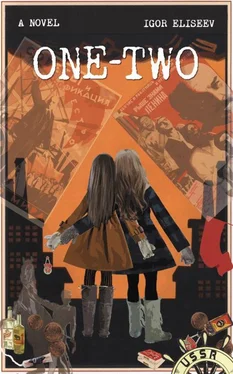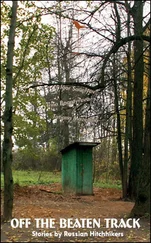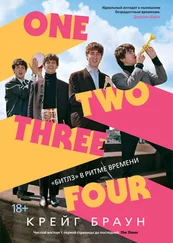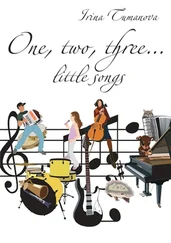“Do you suggest burying her?”
I shook my head.
“It’s impracticable. The ground is hard like stone; we can’t dig into it, and besides, we haven’t got a shovel.”
“So what shall we do?” you cried impatiently.
“We’ll look for a militiaman and tell him we entered the house by mistake and came across a dead woman inside.”
“So, another lie?” you quipped. “Well, quite okay with me!”
I wanted to object, but then suddenly understood: no matter if we looked at the world with your eyes or mine, it didn’t change the essence. We lied constantly because we were forced to lie; our small lies were only a reaction to the big lies. All I could do was comfort myself with the thought that it will be another minor lie, intended to hide the unwanted truth.
The story we had made up in haste and apprehension, of course, didn’t help us. At first everything went “according to plan”. We found a militiaman and showed him where the girl’s body lay. A huge guy with a baby face and a big belly dexterously rolled up the poor girl’s sleeve and revealed injection spots on her arms in no time at all. It emerged that similar incidents had occurred quite often in our house. He called a patrol car via portable radio and took us to the dispatch center. Failing to provide a clear story and documents, we immediately got thrown into a slammer (Slang – pre-trial detention center; special premise for detainees in a police station). Everything happened so quickly that before we had time to realize it, we found ourselves behind bars and every employee of the dispatch-center any old time approached us without any pretext and stared at us like zoo visitors.
“We are so fucked up!” you hissed spitefully and defiantly turning away from me, moving your head only.
“You probably swallowed your gold crown today, for you’re making such a fuss about yourselves,” someone hoarsely laughed in the corner. “I see money, lots of money you’re going to make,” continued the same voice, “but it still won’t help you; it gives you so many problems and so much grief and no love.”
“It would be even more disheartening to know that we don’t give a damn about love,” you snapped. “And what were you saying about money?”
“You win some, you lose some, never know what you’re gonna get,” the voice chuckled.
It was very dark in the corner of the cell and so we couldn’t make out the person talking to us. However, when our eyes got used to it, we saw a very stout, elderly woman, wrapped in a multitude of shawls. She was sitting opposite us and smoking a pipe.
“Are you a gipsy?” I asked shyly, examining this unusual woman.
“Me? Is that important? It is more important who you are. Answer this question, and everything will become clear.”
“We are miserable freaks,” you blurted out vehemently.
“We are all freaks. We are born normal, but gradually, step by step, things change,” and she burst out laughing loudly. “It is a pity that you make no use of your own beautiful look; people would appreciate it and would not spare money.”
“That’s damn lies”, you objected resentfully, “First, people are afraid of us, then they despise us, then they ridicule us, and then they ignore us.”
There came a short silence during which the gipsy beat out ashes from her pipe and, having filled it again, came up to us closely.
“In fact being so beautiful isn’t all good,” she grinned mischievously. “My precious, I see fear and hostility in your words. You don’t need to be afraid of people, they are afraid of themselves quite enough. What do you see around you?”
“A cell with grids; we are locked in.”
“And unhappy,” I added.
“And you probably think that after getting out of here, you’ll suddenly become happy.”
“We will be free,” you replied defiantly.
“Will you?” the gipsy grinned. “Yes, your burden is heavy: unhappy, ugly, naive and miserable. However, the one who calls you so is miserable too.”
I remember I thought then: “It seems like we are lucky again, meeting a person treating us like people”.
“Do you think happiness depends upon other people or, maybe, upon so-called freedom?”
“Happiness… unhappiness,” you snarled. “Who cares? We are locked up like animals in a cage.”
“Yes, you are. You are right about it, precious. But this place is warm and they give you food and a bed. Maybe everything isn’t so bad. That’s a lot to think about,” the gipsy said, puffing a stream of spicy smoke into our faces.
Having cleared my throat from the smoke, I tried to look at her closely and suddenly realized that she was absolutely blind. Her two muddy fish- eyes looked directly at us, and I could swear she could see with them.
“This place can’t be good, that’s why we feel bad,” you noted acidly.
“Good… bad… It’s neither bad nor good,” imitating you, she muttered. “It depends on what it’s good or bad for and how you get used to it. As for me, it’s not only daylight that I can’t see, but my old ass, too.”
“In that case, everything that is good can turn out to be bad one day,” I said for no obvious reason.
“It can… It cannot,” the gipsy smirked. “Surreally, it can’t! ”
And having closed her blind eyes, she trudged back to her place in the depths of the cell.
We spent all night long in the cell feeling cold and restless. I automatically rummaged around, always looking for something. In the dispatch center that never sleeps, I was forgetting and remembering again and again: they didn’t give us our blanket back.
In the morning, an absolutely unfamiliar man, who looked as if he had a huge pug (Decorative dog breed traditionally held by the aristocracy. A dog with a lively, cheerful, yet even temper, noble and affectionate to the owner) instead of his head, with thick whiskers resembling furry paws and short ears covered with wool-like hair, came for us.
“Those ones!” he barked through clenched teeth to the militiaman accompanying him, pursing his lips as if he were getting ready to spit. “There is no need to make something up, they’re model freaks; the money will just roll in.”
And having blown his nose on the floor, the “pug” continued addressing us directly:
“Congrats! You’ve got a job: standing in a walking tunnel. Hey, don’t make that face; to tell the truth, there’s not much choice: either going with me or staying here in jail. And don’t forget to thank Shanita for helping you.”
We needed to make a decision. In search of advice, I looked around but saw no one. The bench in the depth of our cell was empty; the gipsy, probably the same Shanita, had miraculously disappeared. The only sound to be heard was the snotty pug’s voice:
“The treatment of detainees at militia stations might actually be worse than in prisons.”
We hesitated, but we really had no choice.
“Deal,” you agreed.
In half an hour we were brought to a tunnel where some cripple was already standing with his knees slightly bent and his head tilted sideways. Thrusting his only hand forward, he squinted intensely, as if from blinding sunlight, and smiled mildly. As we came nearer he put his hand to his face convulsively, as if protecting himself from invisible blows, and started shivering miserably. Meanwhile, the pug whispered something in his ear, making the one-armed beggar screw up his face, which became small and sloped. A minute later he picked up his can from the floor, poured its contents into the pug’s pocket and obediently left the tunnel, casting fearful glances around.
“Now this is your spot,” the supervisor told us. We didn’t know yet that that was what people collecting tribute from beggars were called – supervisors! Dwellers of and in the tunnels – cripples and the poor – literally worshipped the pug. He endowed them with a spot, and having a spot ensured, they didn’t die, and food and a roof over their heads were guaranteed.
Читать дальше












